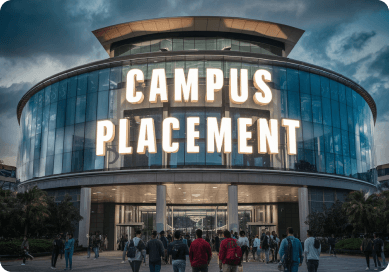Enter OTP



Montpellier, France

Montpellier, France

Cost Of Living

Undergraduate Fees International Students

Post Graduate Fees International Students

Paul Valéry University Montpellier III stands out for its strong focus on humanities, arts, and social sciences, paired with affordable education and generous financial aid. It offers performance- and need-based scholarships like the Mobility Support Fellowship and Erasmus Mobility Assistance. The university’s international partnerships open doors for students to study or intern abroad through programs like ANR and European research collaborations. With a moderate acceptance rate of around 60%, it remains accessible without compromising academic standards. Its dynamic research ecosystem, involving over 50 research units, encourages innovation and global engagement. This blend of academic strength, mobility, and support makes UPVM a top choice in southern France.
Tahar Rahim, born in 1981 in France, is one of the most internationally recognized actors to emerge from UPVM. His bre... View More
Tahar Rahim, born in 1981 in France, is one of the most internationally recognized actors to emerge from UPVM. His breakout role was in the 2009 film A Prophet (Un Prophète), earning him both the César Award for Best Actor and Most Promising Actor. Since, he has taken on complex, globally visible roles: FBI agent Ali Soufan in The Looming Tower and Judas in Mary Magdalene (both 2018). Rahim’s trajectory—from local humanities studies to global cinema acclaim—reflects the university’s strength in nurturing communicative and interpretive skills View Less
Thierry Ardisson, born in 1949, became a household name in French media as a television presenter, producer, and talk�... View More
Thierry Ardisson, born in 1949, became a household name in French media as a television presenter, producer, and talk‑show host. He blended wit with visual flair, pioneering formats that combined entertainment with intellectual edge. After his time at UPVM, Ardisson launched influential programs that shaped modern French TV and film production. His work reflects a bridging of culture and media—an intersection cultivated by the university’s focus on arts, communication, and critical expression View Less
Alexis Corbière, born in 1968, studied at Montpellier III between 1987 and 1990 before rising to French national po... View More
Alexis Corbière, born in 1968, studied at Montpellier III between 1987 and 1990 before rising to French national politics. A longtime spokesperson for Jean‑Luc Mélenchon’s La France Insoumise, he’s served in the National Assembly since 2017, representing Seine‑Saint‑Denis’s 7th constituency. Known for passionate oratory and left‑wing advocacy, Corbière’s political roots in communication and the humanities speak to the university’s ability to foster engaged public figures View Less
Christian Lacroix—born in 1951—studied at UPVM from 1969 to 1971 and became an internationally acclaimed fashion and... View More
Christian Lacroix—born in 1951—studied at UPVM from 1969 to 1971 and became an internationally acclaimed fashion and costume designer. Launching his eponymous haute couture house in 1987, Lacroix reinvented luxury with exuberant colors, rich textures, and historical layering. His dramatic aesthetic owes much to his arts-centered academic formation. Lacroix bridged academic study in literature, history, and cultural narratives with haute couture, embodying UPVM’s creative spirit View Less
Jean‑Marie Lassère (1932–2011) was a respected historian and epigrapher at UPVM, specializing in Roman Africa. He... View More
Jean‑Marie Lassère (1932–2011) was a respected historian and epigrapher at UPVM, specializing in Roman Africa. He authored foundational works like Manuel d’épigraphie romaine and the Bibliographie analytique de l’Afrique antique. A deeply meticulous scholar, Lassère taught successive generations at Montpellier III, embodying research rigor in classical humanities. His work cemented the university’s reputation in ancient studies View Less
Marc Gabolde, born in 1957, is an Egyptologist and longtime lecturer at UPVM. He specializes in the Eighteenth Dynasty a... View More
Marc Gabolde, born in 1957, is an Egyptologist and longtime lecturer at UPVM. He specializes in the Eighteenth Dynasty and Amarna period and has led digs in the Valley of the Queens, Karnak, Tebtunis, and Amarna. His writings—D’Akhénaton à Toutânkhamon and Akhenaton : Du mystère à la lumière—are key references in Egyptology. Gabolde’s dual impact as educator and field researcher highlights UPVM’s strong archaeological and historical identity View Less
Arlette Jouanna (1936–2022) served as professor emerita at UPVM, specializing in sixteenth-century French political an... View More
Arlette Jouanna (1936–2022) served as professor emerita at UPVM, specializing in sixteenth-century French political and social history. Her work on nobility and the Wars of Religion contributed significantly to early modern historiography. A pillar of UPVM’s Centre for Interdisciplinary Research in Humanities, Jouanna mentored countless students and published influential scholarship. Her career exemplifies the university’s dedication to in-depth historical reflection and social context View Less
Marlène Zarader (1949–2025) was a philosopher who taught at UPVM and was a member of the Institut Universitaire de Fr... View More
Marlène Zarader (1949–2025) was a philosopher who taught at UPVM and was a member of the Institut Universitaire de France. Her studies bridged Heideggerian thought with Hebrew and hermeneutic philosophy. Her seminal work, La dette impensée (The Unthought Debt, 1990), later translated into English, reshaped philosophical discourse. Zarader’s death in Montpellier on 6 June 2025 marked the loss of a key thinker whose career exemplified the depth of intellectual inquiry fostered at Montpellier View Less
Frédéric Servajean, born in 1957 in Santiago, Chile, is a professor of Egyptology at UPVM and director of the Labex AR... View More
Frédéric Servajean, born in 1957 in Santiago, Chile, is a professor of Egyptology at UPVM and director of the Labex ARCHIMEDE. He founded the online journal ENiM and leads the VÉgA lexicon project—a multilingual ancient Egyptian dictionary. His fieldwork includes work in Atfieh and work on Pharaonic navigation. Servajean combines modern methodologies with ancient scholarship, illustrating UPVM’s commitment to innovation in classical disciplines View Less
Born in Paris in 1947, Jean-Bruno Renard is a sociologist and professor emeritus at UPVM, where he led the sociology dep... View More
Born in Paris in 1947, Jean-Bruno Renard is a sociologist and professor emeritus at UPVM, where he led the sociology department and master’s programs. His work explores popular culture (comics, the fantastic), urban legends, rumors, and paranormal beliefs with a skeptical lens. Renard’s career, including leadership roles in academic governance (CNU), reflects the university’s engagement with contemporary cultural sociology and critical inquiry into societal phenomena View Less
Paul Valéry University Montpellier III offers a modern, tree-lined campus recognized as a 20th-century architectural heritage site. It features 15 libraries, advanced language labs, amphitheaters, and digital learning centers to support a wide range of academic disciplines. The Saint-Charles site serves as a major research hub with state-of-the-art facilities for interdisciplinary work. A dedicated sports complex and the SUAPS department promote student fitness and well-being. Cultural infrastructure includes La Vignette Theatre, a museum of classical sculptures, and a student-run symphony orchestra. The campus blends academic, cultural, and recreational spaces into an environment that’s both inspiring and highly functional.
Student life at Paul Valéry University Montpellier III is buzzing—with over 30 clubs spanning theatre, music, debate, solidarity, sports, languages and more. The University Cultural Centre anchors the action through La Vignette theatre, exhibitions, concerts, and a student-run symphony orchestra. A spirited Maison des Étudiants provides space for events, from film screenings to cultural festivals, anchoring community and creative exchange. SUAPS ensures sports are part of campus identity, offering everything from team leagues to wellness classes. With libraries, digital hubs, cafés, and green courtyards, every corner invites connection, collaboration, and downtime. It’s a campus where academic focus and vibrant social life coexist seamlessly.


Paul Valéry University Montpellier III’s Career Services Office offers targeted support through résumé and cover-letter workshops, mock interviews, and career planning consultations. It organizes annual job fairs and employer networking events on campus to connect students directly with regional and international organizations. Many programs include built-in internship pathways, leveraging partnerships with NGOs, cultural institutions, and businesses to provide real-world experience. The office also runs “Transition to Employment” events each semester, featuring recruiters and consultants for Master’s and PhD students. Online platforms and alumni mentoring programs connect current students with professionals in their field. This comprehensive support helps graduates move confidently from academic life into the job market.
The below information is required while
completing the university application :
Higher-Education Eligibility from Home Country
You must hold a diploma (like a high school certificate) recognized as qualifying you for university-level study in your origin country
French Language Proficiency (Minimum B2)
Non-native speakers must demonstrate proficiency by holding a DELF B2, DALF C1, TCF?DAP, or comparable French language test
EU or French Baccalauréat holders apply via Parcoursup.
Non-EU candidates usually apply through Campus France (CEF process) or, under certain circumstances, the university’s own “White” or “Green” file
Academic Records and Transcripts
You must submit official transcripts from your secondary or prior post-secondary studies, translated into French if necessary (UPVM).
Motivation Letter and/or Interview (if required)
Some programs may require a personal statement, motivation letter, or participation in an interview—particularly for competitive or specialized tracks
National or University-Specific Deadlines
Licence 1 (first year): Parcoursup window runs ~mid?January to mid?March.
Licence 2 & 3: Application via eCandidat (typically April?July, with a supplementary round in August?September)
Additional Requirements for Non-EU Applicants
Along with the above, non-EU students must follow Campus France procedures, and ultimately apply through eCandidat if they don't hold a French/European baccalaureate—this includes visa support and administrative processing
Know more
Campus recruitment is anchored by a dedicated Career Services Office that hosts job fairs, employer networking events, and workshops on résumés, interviews, and job search strategies. Many programs feature built‑in internships through partnerships with local businesses, NGOs, cultural institutions, and industry partners—especially in communications, publishing, heritage, and social sciences. Each semester, the university organizes a “Transition to Employment” day alongside Groupe UM to guide Master's and PhD graduates into the job market, with sessions from recruiters and career consultants. The campus also supports international experience via internship placements abroad through Club Teli and Erasmus+ programs. Discipline‑specific career tracking shows high integration rates—93 % in social sciences, 87 % in arts and languages, and 87 % in economics and management . Add robust support—career guidance, alumni networking through platforms like ResUM and APEC workshops—and you’ve got a recruitment ecosystem that really works for students.



Paul Valéry University Montpellier III shines as the premier center for communication, languages, and humanities research in Southern France. Its staff and students consistently win national and international awards, underscoring their academic strength. Through partnerships with private organizations, educational institutions, and government bodies, UPVM drives innovation, technology transfer, and business creation in the region. Regular top rankings in the Mediterranean underscore its cultural and economic influence. With active European and ANR collaborations, the university not only excels academically but shapes real-world outcomes. That’s UPVM – where intellectual excellence meets regional impact.


UPVM’s own academic press, PULM, consistently publishes around 50 titles each year in print and e-book formats. This demonstrates deep support for faculty and student voices—and not just internally. PULM amplifies Mediterranean scholarship globally, curates regionally significant research, and boosts UPVM’s intellectual footprint. It’s not vanity press—PULM’s strong output reflects sustained capacity for editorial quality and open access distribution, reinforcing the university’s role as thought leader.
Graduate employability is impressive: 93% of human‑social scientists, 87% of arts-and-languages students, 87% in law/economics/management, and 81% of master's grads find work by 30 months post-graduation. UPVM doesn’t just teach theory—it prepares people for practice, with career services, partnerships, and internship pathways embedded across programs. These strong integration rates show that its academic rigor also translates into real-world relevance and workforce readiness.
UPVM is the only university in Occitanie to have won the “New Curricula” national call, as part of the Nexus digital humanities initiative. This recognizes its forward-thinking curriculum design—balancing digital tools with literary and cultural study. The award isn't symbolic; it highlights generational vision: mapping ancient texts, media workflows, archival systems, and digital storytelling into humanities programming. That strategic edge positions UPVM as a national pioneer in bridging tech and humanities education.
UPVM ranked first in France for the attractiveness of its license programs and stood out nationally for its strong distance education (EAD) offering . With versatile online formats catering to lifelong learners and international students, the university has embraced flexible access. This achievement reflects its capacity to adapt to evolving educational landscapes—well ahead of peers in Occitanie. It’s not just a ranking—it’s testament to UPVM’s commitment to democratizing learning, honoring diverse student needs, and maintaining quality whether in the lecture hall or behind a screen.
UPVM ranks 3rd in France for research output in “Languages, Texts, Arts & Cultures,” with 74 percent of its researchers rated A or A+. It also secured the first ERC grant in the country specifically for humanities and social sciences. These metrics are no academic footnote—they reflect consistent excellence. The ERC grant signals international confidence, while the researcher performance percentages point to sustainable scholarly infrastructure capable of producing ground-breaking work.
In 2017, UPVM’s woodland-rich campus was officially labelled a “20th‑century heritage site.” Just 20 minutes by tram from Montpellier’s heart, it blends Mediterranean greenery, open lawns, public art, and bold architecture. With new facilities like a Learning Centre, Pavilion for general resources, and an updated Staff House, the campus is a living canvas—where cultural pride meets student life. It’s rare for a humanities-focused university to merge architectural heritage and modern innovation so seamlessly. Today, this distinction isn’t just charming—it’s a tangible reflection of the university’s identity and regional resonance.
The inauguration of the Saint-Charles site in 2017 marked a major milestone. It now hosts 19 interdisciplinary research teams, a nationally funded Labex (Laboratory of Excellence), a European Research Council (ERC) project, and an IDEFI program for innovative training—all central to Montpellier’s Maison des Sciences de l’Homme Sud. This center isn’t just facilities—it’s a symbolic heart of research synergy, where linguistic scholars, historians, sociologists, and digital humanists actively cross disciplinary boundaries to redefine humanities and social sciences in the region.
UPVM hosts over 4,000 international students representing 128 nationalities and maintains 365 Erasmus agreements, 120 global cooperation accords, seven co-diplomas (including Erasmus-Mundus), and nine off-site training programs. Its global footprint isn’t passive; it fosters a lively, culturally plural campus where students learn from each other's worlds. This breadth sustains UPVM’s appeal as a magnet in the humanities—a place where global ideas shape local culture and vice versa.
Paul Valéry University Montpellier III drives innovation through more than 50 research units spanning medieval studies, sociolinguistics, Renaissance and Enlightenment studies, and beyond. Its interdisciplinary labs foster collaboration across arts, humanities, and social sciences, boosting regional cultural and economic impact. The university partners in European and ANR-funded projects, enabling technology transfer, startup creation, and international research mobility. Doctoral schools anchor high-level scholarship while embedding students in hands-on discovery. Faculty and students regularly win national and international awards, raising UPVM’s academic profile. What this means is a research ecosystem that's creative, connected, and actively reshaping southern France’s intellectual landscape.

Embark on your educational journey with confidence! Our team of admission experts is here to guide you through the process. Book a free session now to receive personalized advice, assistance with applications, and insights into your dream school. Whether you're applying to college, graduate school, or specialized programs, we're here to help you succeed.
